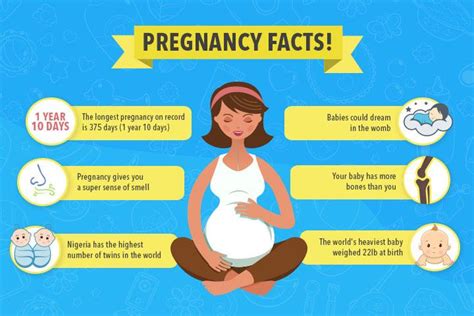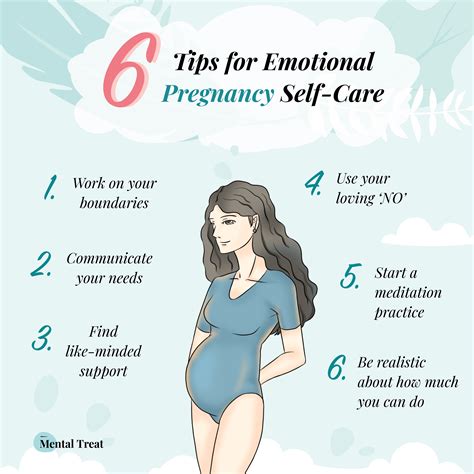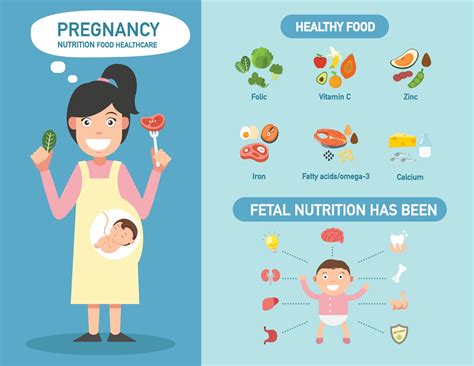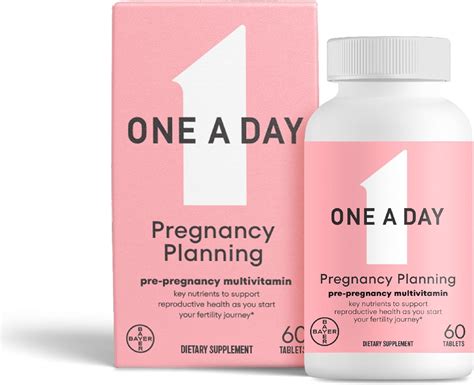Intro
Discover pregnancy and sexual intercourse facts, including safe sex during pregnancy, intimacy, and libido changes, to ensure a healthy pregnancy journey.
Pregnancy is a complex and fascinating process that involves the growth and development of a fetus inside the womb of a woman. One of the most common ways to become pregnant is through sexual intercourse, but there are many myths and misconceptions surrounding this topic. Understanding the facts about pregnancy and sexual intercourse can help individuals make informed decisions about their reproductive health. In this article, we will delve into the world of pregnancy and sexual intercourse, exploring the benefits, risks, and mechanisms involved.
As we navigate the topic of pregnancy and sexual intercourse, it's essential to recognize the importance of education and awareness. Many people have unanswered questions or concerns about pregnancy, and it's crucial to address these queries in a clear and concise manner. By doing so, we can empower individuals to take control of their reproductive health and make informed decisions about their bodies. Whether you're trying to conceive or seeking to understand the intricacies of pregnancy, this article aims to provide a comprehensive guide to the facts and myths surrounding pregnancy and sexual intercourse.
The journey to pregnancy begins with sexual intercourse, which involves the union of sperm and egg. This process is intricate and requires precise timing, as the window for fertilization is relatively short. The average woman ovulates once a month, releasing a single egg from her ovaries, which then travels through the fallopian tube. If sperm is present during this time, fertilization can occur, resulting in the formation of a zygote. This zygote will then implant itself in the uterine lining, marking the beginning of pregnancy. Understanding the mechanics of pregnancy and sexual intercourse can help individuals appreciate the complexity and beauty of human reproduction.
Pregnancy Facts

When it comes to pregnancy, there are many fascinating facts that highlight the incredible journey of fetal development. From the moment of conception, the fertilized egg begins to divide and grow, eventually forming a fetus. This process involves the development of vital organs, limbs, and sensory systems, all of which are essential for the fetus's survival. Some interesting pregnancy facts include the ability of the fetus to detect sounds and tastes, as well as the development of its own unique fingerprint. By exploring these facts, we can gain a deeper appreciation for the complexity and wonder of pregnancy.
Benefits of Pregnancy
Pregnancy offers numerous benefits for women, including the opportunity to experience the joy of motherhood and the chance to nurture a new life. The physical and emotional changes that occur during pregnancy can also have a profound impact on a woman's overall health and well-being. For example, pregnancy can help to strengthen the bond between partners, fostering a deeper sense of love and connection. Additionally, the experience of pregnancy can help women develop greater self-awareness, self-care, and self-compassion, all of which are essential for maintaining good mental and physical health.Sexual Intercourse and Pregnancy

Sexual intercourse is the most common way to become pregnant, but it's essential to understand the mechanics involved. The process of fertilization requires the presence of sperm in the vagina during ovulation, which typically occurs once a month. The chances of becoming pregnant during sexual intercourse depend on various factors, including the timing of ovulation, the quality of sperm, and the overall health of the reproductive system. By understanding these factors, individuals can better appreciate the complexities of pregnancy and take steps to optimize their chances of conception.
Risks and Complications
While pregnancy can be a joyful and life-affirming experience, it's also important to acknowledge the potential risks and complications involved. These can include miscarriage, ectopic pregnancy, and gestational diabetes, among others. Additionally, sexual intercourse during pregnancy can pose certain risks, such as the transmission of sexually transmitted infections (STIs) or the disruption of the placenta. By being aware of these risks, individuals can take steps to minimize their chances of complications and ensure a healthy pregnancy.Pregnancy and Emotional Well-being

Pregnancy can have a profound impact on a woman's emotional well-being, with many experiencing a range of emotions, from joy and excitement to anxiety and fear. The physical and hormonal changes that occur during pregnancy can also contribute to mood swings, fatigue, and stress. By acknowledging these emotional challenges, individuals can take steps to prioritize their mental health and well-being, seeking support from partners, family, and friends as needed.
Self-Care during Pregnancy
Self-care is essential during pregnancy, as it can help to mitigate the physical and emotional challenges involved. This can include practices such as meditation, yoga, and deep breathing, as well as engaging in activities that bring joy and relaxation. By prioritizing self-care, individuals can help to maintain their overall health and well-being, reducing the risk of complications and promoting a positive pregnancy experience.Pregnancy and Nutrition

A healthy diet is crucial during pregnancy, as it provides the necessary nutrients and energy for fetal development. A balanced diet should include a variety of foods, such as fruits, vegetables, whole grains, and lean proteins. Additionally, pregnant women should aim to stay hydrated, drinking plenty of water throughout the day. By prioritizing nutrition, individuals can help to support the health and well-being of their fetus, reducing the risk of complications and promoting a positive pregnancy experience.
Food Safety during Pregnancy
Food safety is also essential during pregnancy, as certain foods can pose a risk to the health of the fetus. These can include foods that are high in mercury, such as shark and swordfish, as well as foods that are raw or undercooked, such as eggs and meat. By being aware of these risks, individuals can take steps to minimize their exposure, opting for safer alternatives and cooking foods thoroughly.Pregnancy and Exercise

Regular exercise is also important during pregnancy, as it can help to maintain physical and emotional well-being. This can include activities such as walking, swimming, and prenatal yoga, which are gentle on the body and can help to reduce stress and anxiety. By prioritizing exercise, individuals can help to promote a healthy pregnancy, reducing the risk of complications and supporting the overall health of their fetus.
Benefits of Exercise during Pregnancy
The benefits of exercise during pregnancy are numerous, including improved cardiovascular health, increased energy levels, and enhanced mood. Regular exercise can also help to reduce the risk of gestational diabetes, hypertension, and other pregnancy-related complications. By incorporating physical activity into their daily routine, individuals can help to promote a healthy pregnancy and support the overall well-being of their fetus.Pregnancy and Relationships

Pregnancy can also have a profound impact on relationships, particularly between partners. The experience of pregnancy can bring couples closer together, fostering a deeper sense of love and connection. However, it can also pose challenges, such as changes in libido, intimacy, and communication. By acknowledging these challenges, individuals can take steps to prioritize their relationship, seeking support and guidance as needed.
Communicating during Pregnancy
Effective communication is essential during pregnancy, as it can help to reduce stress and anxiety, while promoting a positive and supportive relationship. This can include open and honest discussions about feelings, needs, and concerns, as well as active listening and empathy. By prioritizing communication, individuals can help to build a stronger and more resilient relationship, navigating the challenges of pregnancy with greater ease and confidence.Pregnancy and Planning

Planning is also essential during pregnancy, as it can help to reduce stress and anxiety, while promoting a positive and supportive experience. This can include creating a birth plan, which outlines preferences for labor, delivery, and postpartum care. By prioritizing planning, individuals can help to ensure a smooth and empowering experience, feeling more confident and prepared for the arrival of their baby.
Creating a Birth Plan
A birth plan is a personalized document that outlines an individual's preferences for labor, delivery, and postpartum care. This can include details such as pain management, labor positioning, and breastfeeding support. By creating a birth plan, individuals can help to ensure that their needs and preferences are respected, promoting a positive and empowering experience.What are the benefits of pregnancy?
+Pregnancy offers numerous benefits, including the opportunity to experience the joy of motherhood, the chance to nurture a new life, and the development of greater self-awareness, self-care, and self-compassion.
How can I reduce the risk of complications during pregnancy?
+To reduce the risk of complications during pregnancy, it's essential to prioritize a healthy diet, regular exercise, and adequate rest. Additionally, individuals should attend prenatal appointments, follow medical advice, and avoid substances that can harm the fetus, such as tobacco and alcohol.
What are the signs of a healthy pregnancy?
+The signs of a healthy pregnancy can include a normal fetal heartbeat, appropriate fetal growth, and the absence of complications such as gestational diabetes or hypertension. Additionally, individuals may experience physical symptoms such as morning sickness, fatigue, and mood swings, which are common during pregnancy.
In conclusion, pregnancy and sexual intercourse are complex and fascinating topics that require education, awareness, and understanding. By exploring the facts, benefits, and risks involved, individuals can make informed decisions about their reproductive health and take steps to prioritize their overall well-being. Whether you're trying to conceive or seeking to understand the intricacies of pregnancy, this article aims to provide a comprehensive guide to the world of pregnancy and sexual intercourse. We invite you to share your thoughts, experiences, and questions in the comments below, and to explore the many resources available for those seeking to learn more about this incredible journey.
